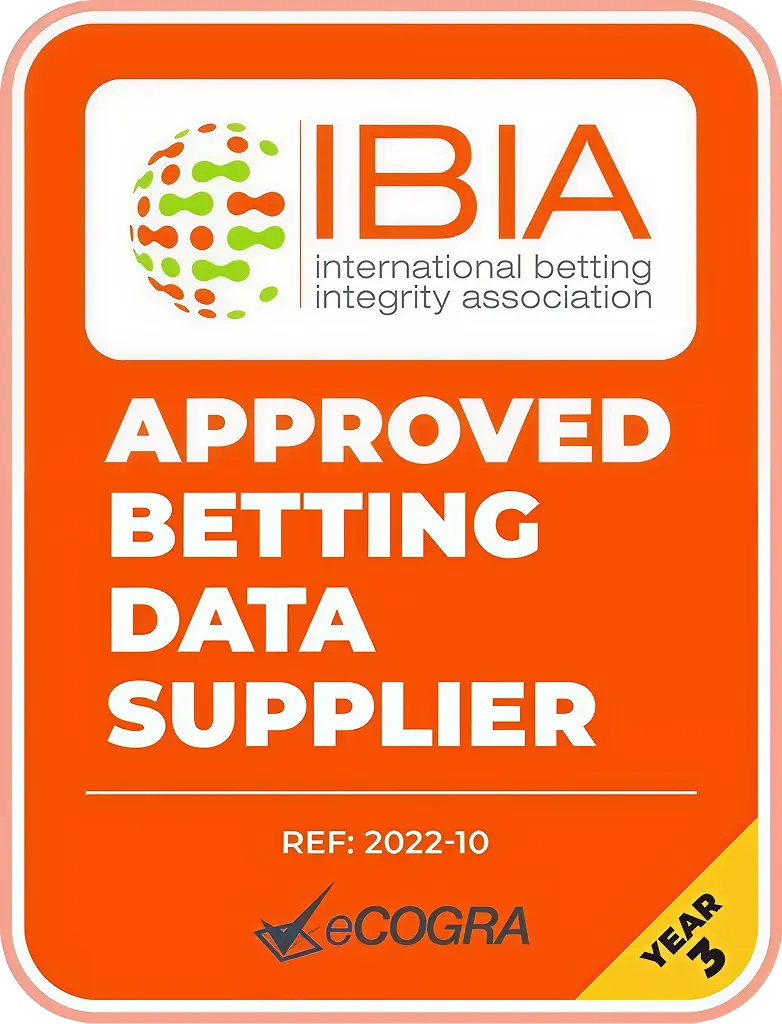Democratizing access to official telemetry esports data.
Get access to CS2 and Dota 2 esports data through a powerful API available for early stage entrepreneurs, students, developers, researchers, and fans.
About Open Access
The GRID Open Access goal is to enhance the accessibility of in-game data and emphasize the importance of utilizing official sources. Pre-revenue startups, academic institutions, independent developers, and fans can get free data access to in-game esports data hosted on the GRID Data Platform.
Open Access users benefit from various data feeds for esports applications, comprehensive documentation, detailed walkthroughs, and personalized support from the GRID Team.
These resources enable creators to fully experience the superior quality and reliability of official data sources, in contrast to unofficial ones.
GRID proudly supports over 250 projects across 10+ categories, including data visualization, analysis, AI applications, and scholarly research.
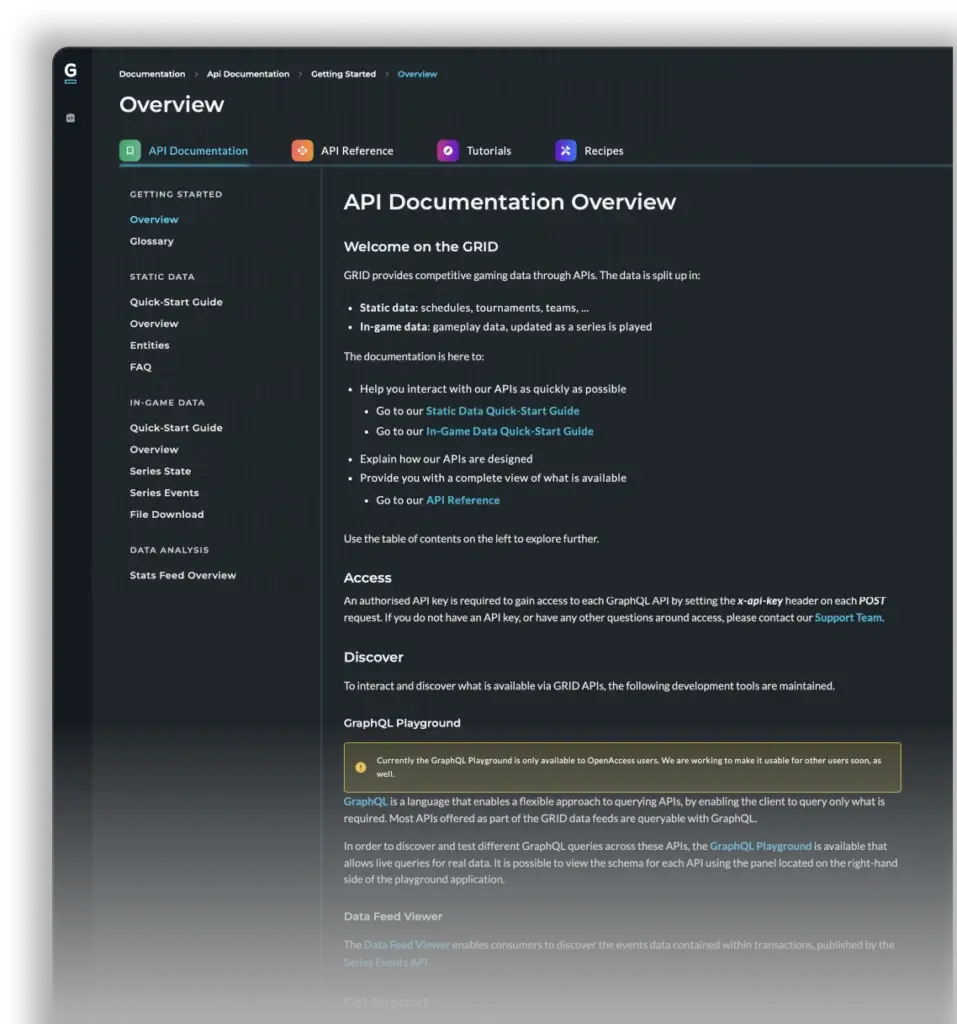
Get Access to Free Data & Esports Data API
MORE TITLES COMING SOON
Open Access Esports Projects Using Official Data APIs.
Category
Livescore + Data Visualisation
Gameflow is building an all-in-one esports destination where you can follow and watch your favorite teams in a tailored experience.
Category
Community & Talent Scouting
Gamrly aims to create a social network for esports players, offering tools to help them promote themselves and connect with influential professionals in the industry.
Category
Fantasy Esports
Clout Fantasy is a Daily Fantasy where you test your Esports knowledge by picking the best teams and players.
Explore How to Use Free Esports Data and Get Inspired.
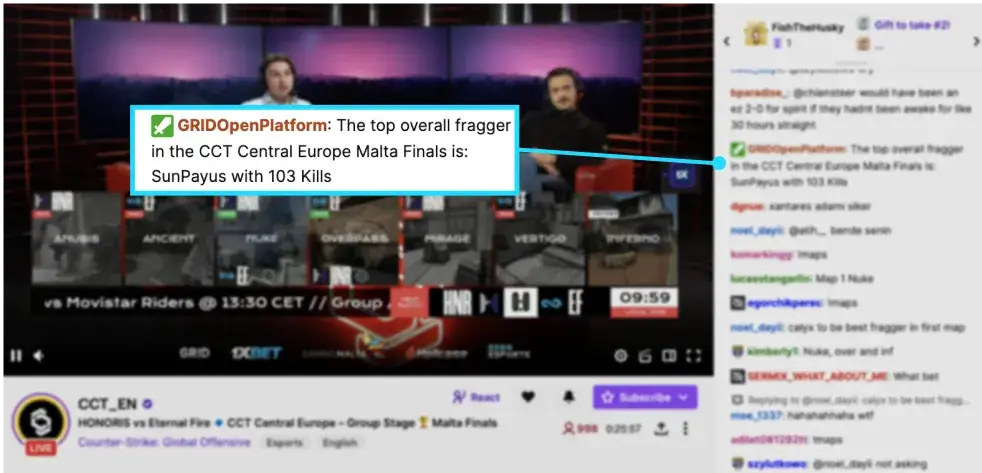
Building a Twitch ChatBot using in-game data.
A GRID Open Access Case Study.
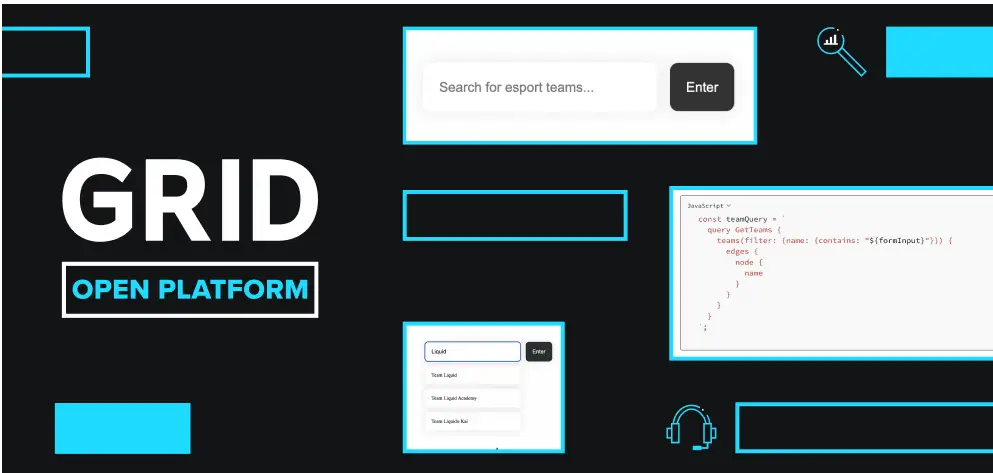
Consuming an esports GraphQL API using JavaScript.
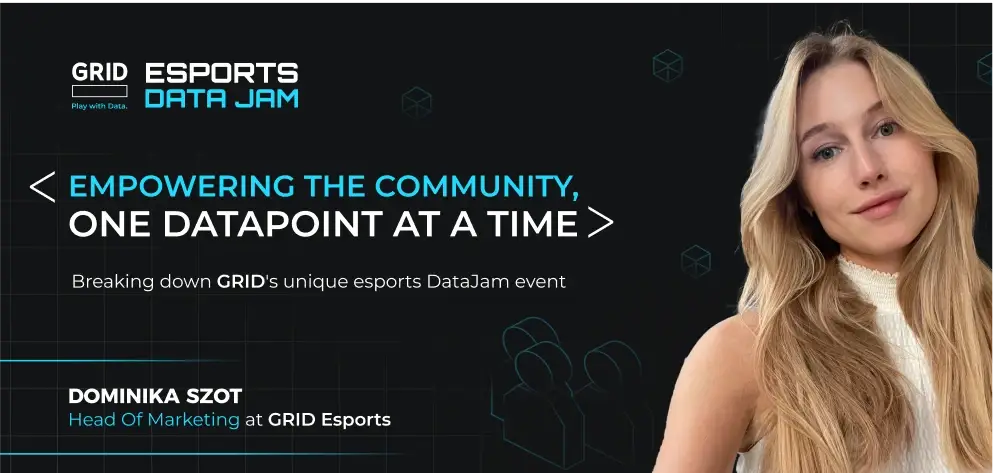
Empowering the community, One datapoint at a time.
Breaking down GRID’s unique esports DataJam event.
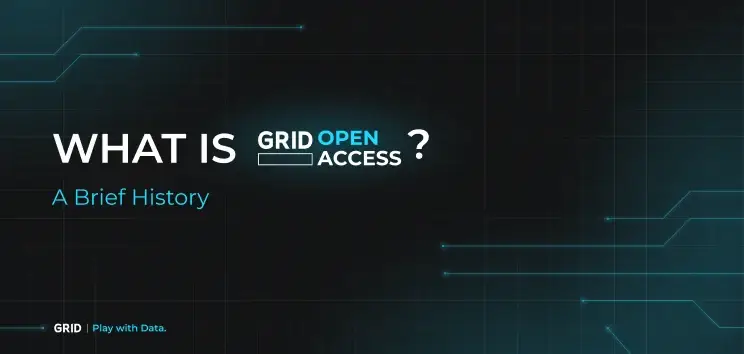
Open Access: From beginning to Now.
Apply for GRID Open Access
Sign Up Now for Free Access to Official Esports Data
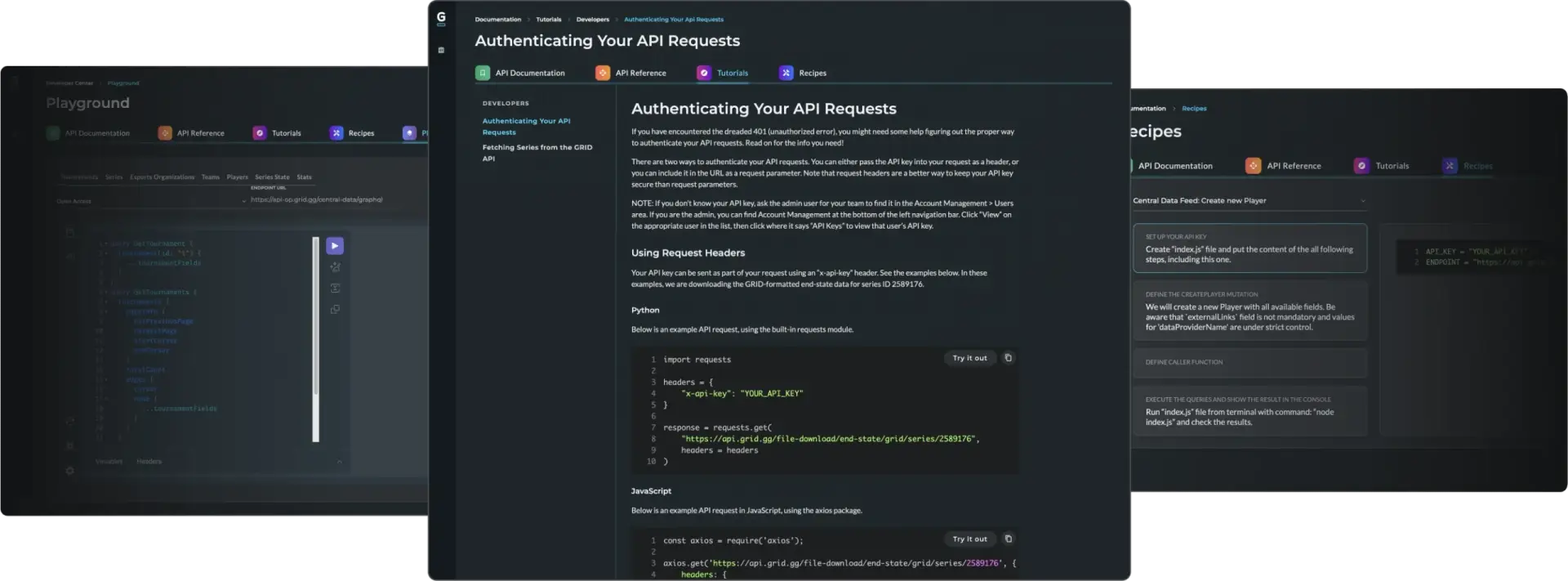
Frequently Asked Questions
In-game data refers to the real-time information generated directly from within a video game during a match. This can include actions like player movements, character stats, kills, objectives, item usage, and other game mechanics. Since this data is captured directly from the game server, it provides a highly detailed, accurate view of what is happening moment by moment.
Esports data encompasses all statistics and metrics related to competitive gaming. This includes not only in-game data (such as player performance or team stats) but also broader data like match schedules, results, player rankings, and historical performance. Esports data is essential for a wide range of applications, from betting markets to coaching, broadcasts, and fan engagement platforms.
You can access CS2 and Dota2 data via GRID Open Access, including real-time match statistics, player performance metrics, team-based stats, and other in-game events. This data can be used to develop projects, enhance broadcasts, and inform research or fan-driven platforms
No, Series Events is not included in Open Access. It is a paid product. If you are interested in it, please get in touch with us via this form.
GRID’s esports data is sourced directly from game servers via partnerships with game publishers and tournament organizers. This ensures that the data is accurate, real-time, and compliant with intellectual property laws. Being officially sanctioned by the rights holders, GRID’s data is the most reliable and complete source available
Using GRID Open Access provides numerous benefits:
- Real-time and accurate: Access to the same high-quality, official data used by broadcasters, analysts, and betting operators.
- Free of charge: The platform offers data at no cost to qualifying users, allowing them to innovate and develop new projects without financial barriers.
- Educational opportunities: Open Access is available to students, developers, and pre-revenue startups to experiment with and create new applications using world-class esports data
No, GRID’s Open Access program offers free access to a wide range of esports data for qualifying individuals and organizations, including pre-revenue startups, students, and educational programs. This initiative is aimed at empowering new projects and growing the esports data ecosystem
We provide free access to esports data as part of our commitment to growing the industry and fostering innovation. By removing the financial barriers to data access, wee aim to encourage new projects, startups, and educational initiatives to explore the potential of esports data, contributing to the broader success of the ecosystem
There have been a few projects built on Open Access by GRIDers, such as building a Twitch ChatBot using in-game data and a tutorial on consuming an esports GraphQL API using JavaScript.
If you are building a project on Open Access and would like to share a case study or tutorial for a chance to be featured on the GRID blog, please get in touch at [email protected].

